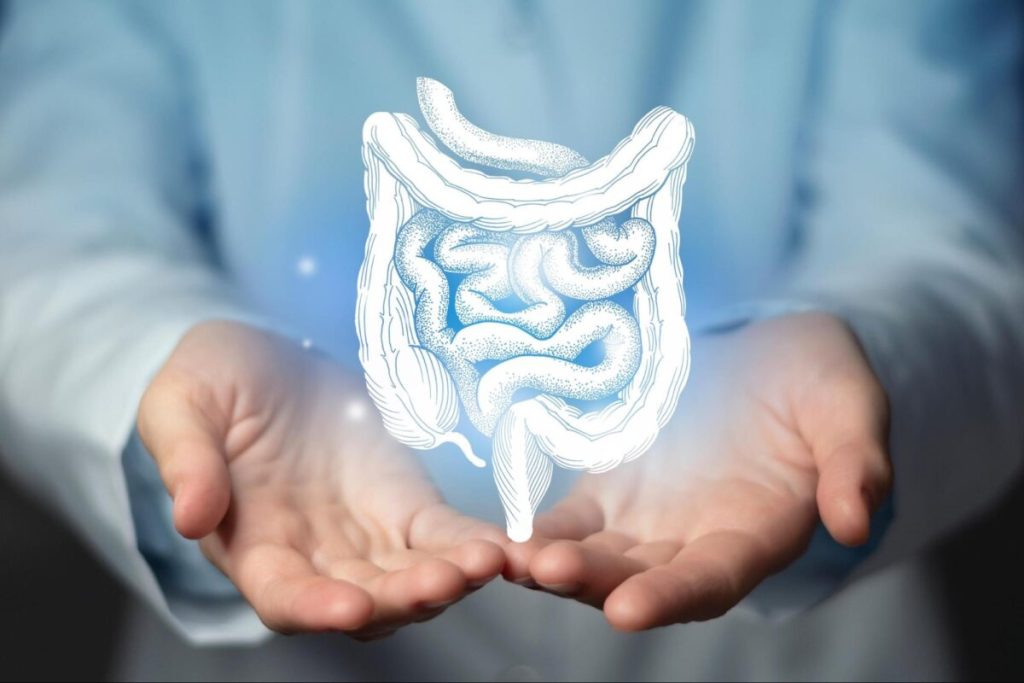How to Maintain a Healthy Colon
The colon, also known as the large intestine, is about 1.5 to 2 meters long, located after the small intestine, and is an important part of the digestive system. The colon’s main function is to absorb water and electrolytes from digested food. It works with bacteria to break down waste and form stool. The colon primarily absorbs water from food after it has been digested in the small intestine, helping to form solid stool. Additionally, the colon absorbs electrolytes such as sodium, potassium, and chloride. The colon stores waste until it accumulates enough, after which it contracts to push the stool into the rectum in preparation for elimination. Inside the colon, there is a system of beneficial bacteria that produce vitamin K and some B vitamins (B7 and B12). These bacteria also play an important role in fermenting fiber, producing short-chain fatty acids beneficial to gut health, facilitating the growth of gut microbiota, supporting immune balance, and fighting harmful bacteria.
When the colon is damaged or its function is disrupted, the body may exhibit several symptoms, including:
- Abdominal pain: This is a common symptom when the colon is inflamed or contracts abnormally. The pain usually occurs in the lower abdomen.
- Constipation or diarrhea: Problems with the colon can lead to disruptions in water absorption. If too much water is absorbed, stools become hard, leading to constipation. On the other hand, if insufficient water is absorbed, diarrhea can occur.
- Blood or mucus in stools: This could be a sign of colitis, Crohn’s disease, or colon cancer. Blood in the stool may appear as bright red or dark blood.
- Bloating and gas: When the colon is damaged, incomplete digestion can lead to gas buildup in the intestines, causing bloating and discomfort.
- Fatigue and weight loss: Chronic conditions like Irritable Bowel Syndrome (IBS) or colitis can cause constant fatigue due to insufficient nutrient absorption and dehydration.
The colon is one of the body’s important organs, yet it often receives little attention and is easily damaged. To protect the colon and prevent serious diseases, it is essential to pay attention to diet and undergo regular medical checkups.
- A fiber-rich diet helps promote bowel movements, softens stools, and prevents constipation. Both soluble and insoluble fibers are important for the colon’s function.
- Drinking enough water helps maintain digestion and softens stools, preventing constipation. Adults should drink 1.5-2 liters of water per day to support the digestive system.
- Consuming probiotic-rich foods such as yogurt, kimchi, sauerkraut, or taking probiotic supplements helps balance the microbiota in the colon, improving digestion and strengthening the immune system.
- Limiting processed foods and fatty foods can help prevent irritation of the colon and maintain digestive function.
- Regular physical activity stimulates bowel movements, improves digestion, and supports colon health.
- For those over 50 or with a family history of colon disease, routine colonoscopy screenings are important for detecting abnormalities or colon cancer risks early.
- Avoiding overuse of laxatives, as frequent use can damage the colon lining and lead to dependence on these medications.
To maintain a healthy colon, it’s important to follow a balanced diet, maintain a healthy lifestyle, and exercise regularly. Additionally, you can consider using natural products that support colon health.


